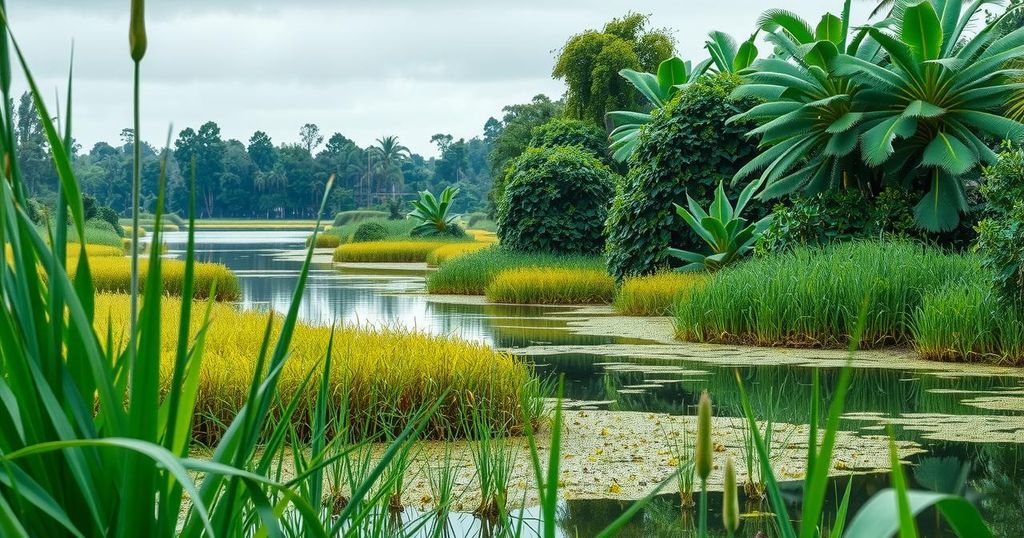Ugandan Government Intensifies Wetland Restoration Efforts in Eastern Region

The Ugandan government is undertaking a crackdown on wetland encroachment in Eastern Uganda, directing NEMA and the Environment Directorate to enforce stricter regulations. Concerns over water pollution and resource management have surfaced among local leaders, emphasizing the need for community involvement in conservation efforts. The initiative aims to restore ecological balance and promote sustainable development in the region.
The Ugandan government is intensifying efforts to restore wetlands in Eastern Uganda, as directed by the Permanent Secretary of the Ministry of Water and Environment. The National Environment Management Authority (NEMA) and the Environment Directorate are to enhance their presence, targeting illegally constructed structures in wetlands, with the support of police and military authorities.
During an event in Mbale City, Lucy Lyango, the Assistant Commissioner for the Wetlands Management Department, emphasized the necessity for stricter enforcement measures. She announced that all individuals occupying wetlands unlawfully will be evicted and face legal consequences, as the regional team has adequate resources to support these sustainable initiatives.
Minister Vincent Woboya, representing the Inzu Ya Masaba Cultural Institution, raised alarms regarding the misuse of water resources in the Bugisu region. He highlighted the pollution of vital rivers and the consequent ecological imbalance, noting that rampant cultivation along riverbanks exacerbates flooding and water scarcity, particularly during dry seasons.
Emphasizing the alterations in local ecosystems, Woboya remarked on the diminishing fish populations in rivers, stating, “We used to catch plenty of catfish and mudfish, but now the only thing you find is frogs. Our people have destroyed these water resources through pollution.” His comments reflect a broader concern for community engagement in environmental conservation efforts.
Reverend Titus Kutosi from the Anglican Church of Uganda presented an initiative aimed at environmental preservation, which includes planting trees and grass on church properties. He expressed a nostalgic connection to the natural beauty of historical landscapes, as he recalled childhood memories of swimming in the River Manafwa and underscored a pressing need for the government to provide alternative livelihoods for communities dependent on wetland resources.
Further advocating for environmental protection, Base Katami, the Vice Chairperson of Mbale District, expressed gratitude for government initiatives in rehabilitating water schemes but called for immediate action in Bunambutye Sub-County, where water quality is adversely affecting local residents.
Harriet Kakai, Deputy Mayor, praised the ministry’s focus on irrigation farming and school sanitation. She expressed a need for community responsibility in safeguarding public projects, questioning why residents would harm beneficial infrastructure while anticipating government assistance.
In summary, the Ugandan government is proactively addressing wetland encroachment in Eastern Uganda through enhanced enforcement and restoration initiatives facilitated by NEMA and the Environment Directorate. Various stakeholders, including local leaders and religious figures, have voiced concerns about the degradation of water resources and are advocating for greater community engagement and alternative livelihoods. The collaboration among governmental and local entities is essential for fostering a culture of environmental conservation and sustainable resource management.
Original Source: www.independent.co.ug






